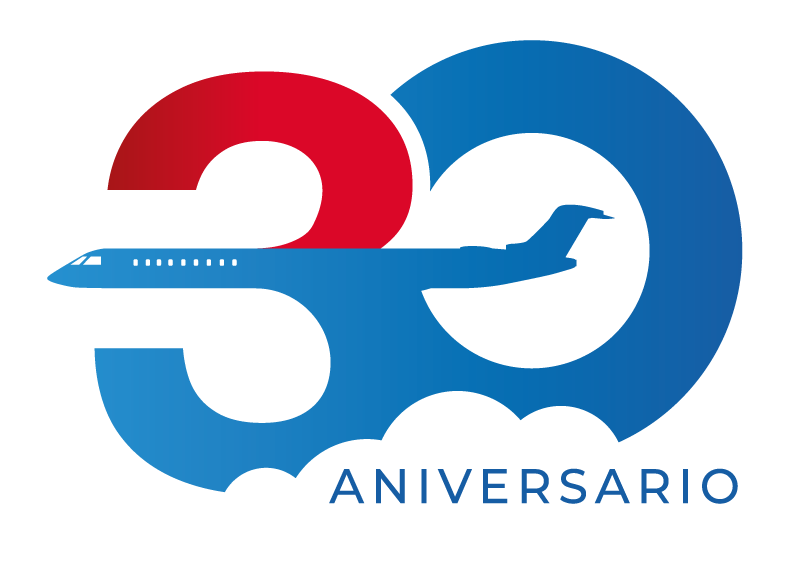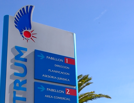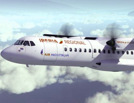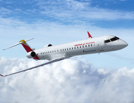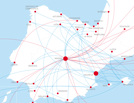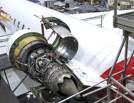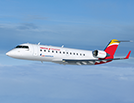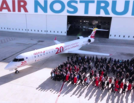
Towards a greener future
Air Nostrum's commitment to the planet is at the core of our sustainability strategy. We understand that the future of aviation depends on our ability to reduce our environmental impact, and therefore, we have developed a series of concrete initiatives and actions to lead the transition toward a more sustainable and efficient aviation model.
Decarbonization and Climate Change
Air Nostrum's commitment to the planet is at the core of our sustainability strategy. We understand that the future of aviation depends on our ability to reduce our environmental impact, and therefore, we have developed a series of concrete initiatives and actions to lead the transition toward a more sustainable and efficient aviation model.

ZERO EMISSIONS
Air Nostrum joins the Fly Net Zero 2050 initiative, with a 5% emissions reduction by 2025 and a 45% reduction by 2030, both in total emissions and per passenger kilometer transported (PKT).
SUSTAINABLE FUELS
By 2030, 10% of our fuel will be SAF, reducing emissions with renewable sources and waste, in collaboration with suppliers.
CONSUMPTION OPTIMIZATION
We've implemented advanced flight route management and fuel consumption systems, using AI to analyze atmospheric conditions and plan more efficient routes. This allows us to optimize each flight and reduce fuel consumption in real time, thus lowering CO₂ emissions.
Innovation and New Technologies
We're driving the future of sustainable aviation with innovative solutions that reduce emissions and optimize operational efficiency.
New technologies in aviation
We are working on developing clean technologies to reduce the environmental impact of regional aviation. We are working with Dante Aeronautical to develop short-haul electric aircraft and hybrid-engine aircraft in the Airlander 10 from Hybrid Air Vehicles.
Predictive maintenance with AI
Using AI, we've developed predictive maintenance models to anticipate failures and optimize the lifespan of aircraft components. This not only reduces the risk of unexpected breakdowns but also minimizes the use of parts and resources, avoiding waste and improving operational efficiency.
Digitalization of operations
We've digitized flight manuals, eliminating the use of paper, and implemented maintenance management systems, optimizing inventories and reducing waste. This allows for real-time updates, improving safety and operational efficiency in our operations.
Energy Efficiency and Sustainability on ground
Environmental impact doesn't just occur in the air. At Air Nostrum, we're also committed to improving the energy efficiency of our ground operations, ensuring that every aspect of our infrastructure and services is aligned with our sustainability goals.
Ground equipments
ELECTRIFICATION
We are gradually replacing maintenance, handling, and ground coordination vehicles and equipment with electric versions. This not only reduces polluting gas emissions but also improves air quality at airports and surrounding areas.
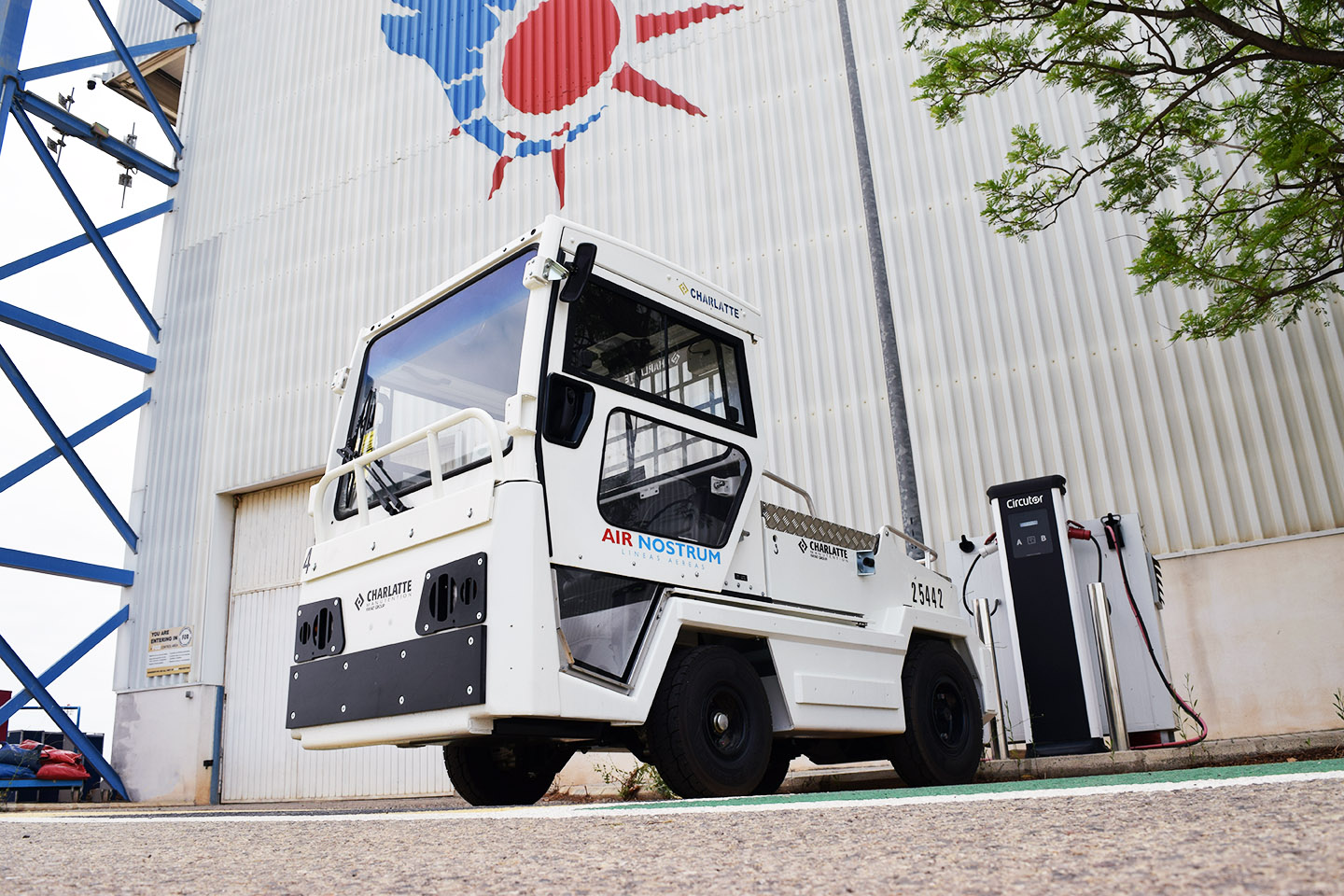

RENOVABLE ENERGY
We implemented solar energy projects to become self-sufficient and reduce our carbon footprint. We also installed LED lighting and motion sensors, reducing electricity consumption by 25% by 2023.
Infrastructure
OPTIMIZATION
We reduce consumption and improve energy efficiency with thermal insulation and intelligent climate control, maintaining the ideal temperature with minimal energy use and fewer indirect emissions.

Circular Economy and Waste Management
At Air Nostrum, we are committed to adopting a circular economy model that promotes the efficient use of resources and minimizes waste. Through various initiatives, we are transforming our operations to ensure that materials are reused, recycled, or reduced to a minimum.

Elimination of single-use plastics
We will eliminate single-use plastics on our flights, replacing them with biodegradable and recyclable alternatives.
By 2025, we aim for all our flights to be free of single-use plastics. We've begun replacing plastics with biodegradable or compostable alternatives, such as bamboo utensils and packaging made from recyclable materials. This will allow us to eliminate millions of tons of plastic from our operations annually.

Recycling and waste management on board
We implemented an onboard recycling system that separates plastics, metals, paper, and glass.
We have implemented a comprehensive onboard recycling system that includes the separation of plastics, metals, paper, and glass, ensuring that the majority of waste generated in flight is recycled or reused. In 2022, we achieved recycling of 75% of the waste generated on board, and our goal is to reach 90% by 2025.

Reforestation and emissions control
We have been offsetting paper use with annual reforestation in the Valencian Community since 2003.
In addition to reducing CO₂ emissions, we participate in reforestation projects to offset the use of paper in our operations. Every year since 2003, we have organized tree planting days with local organizations in the Valencian Community, which contributes to the conservation of biodiversity and improves the natural environment in degraded areas.
Alliances for Global Sustainability
We collaborate with global organizations and initiatives for more sustainable aviation.
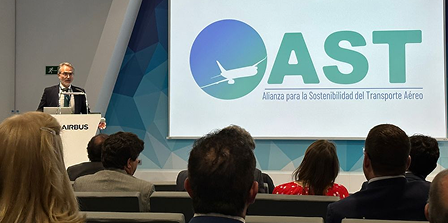
Alliance for Sustainability
We are members of the Steering Council of the Air Transport Sustainability Alliance, promoting clean technologies and innovations for the decarbonization of the sector. This collaboration allows us to accelerate the adoption of sustainable solutions alongside key industry players.
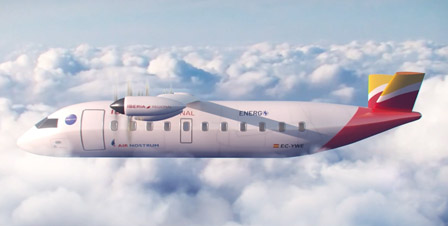
Collaborative innovation projects
We collaborate with manufacturers, research centers, and universities to develop disruptive technologies that will drastically reduce aviation emissions. Our projects include electric aircraft, green hydrogen, hybrid airships, and new sustainable routes.
Comprehensive Environmental Management
At Air Nostrum, sustainability is key. Since 2004, our ISO 14001:2015-certified Environmental Management System has ensured responsible operations in maintenance, air transport, and flight support. In 2021, we integrated it with our ISO 9001:2015 Quality System, expanding it to ground operations and third-party services in 2022 and 2023. We work on continuous improvement to reduce our environmental impact and align our decisions with international best practices.

